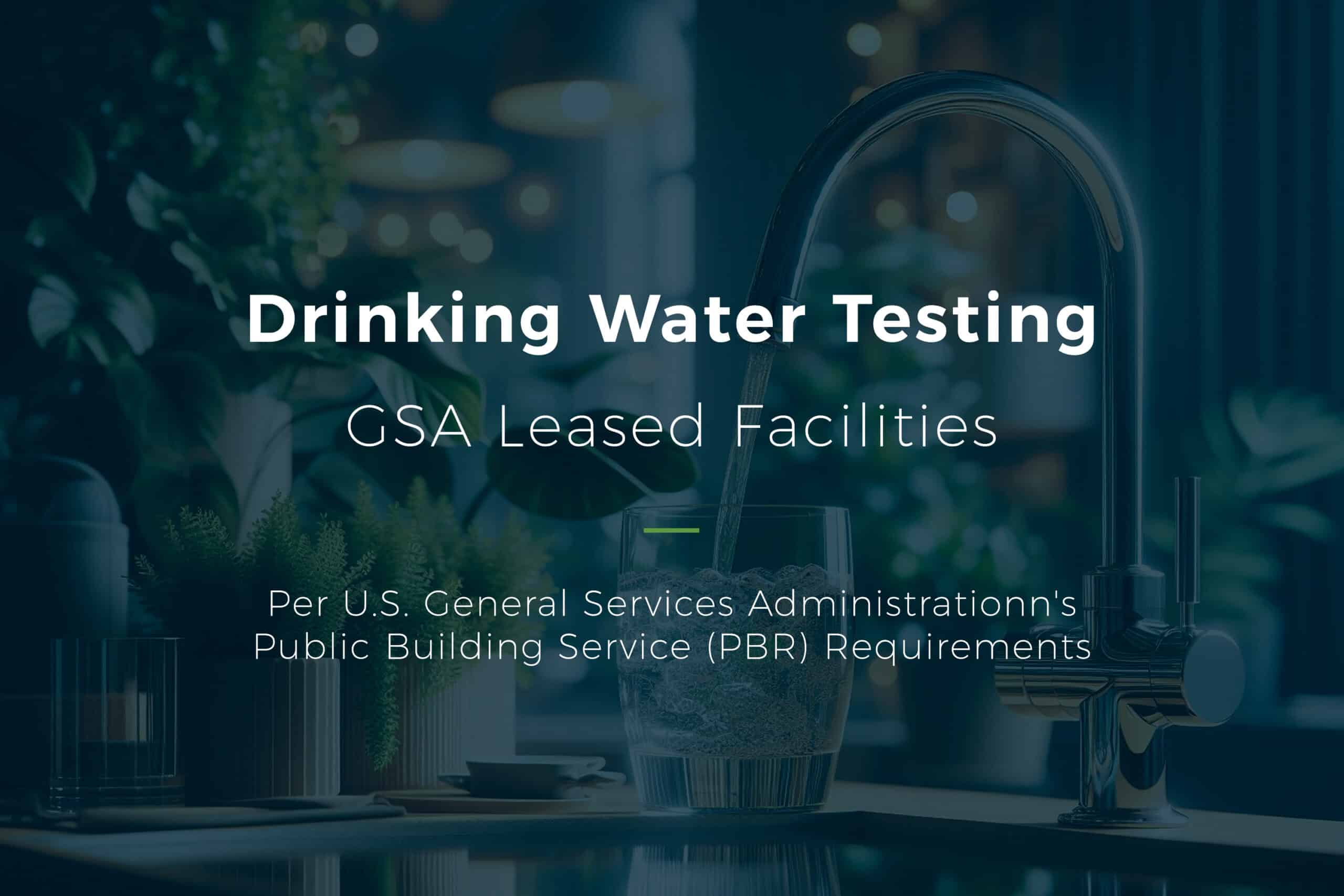
New Water Testing Requirements for Public Buildings – What You Need to Know
Here’s some good news about the health quality of our drinking water. The U.S. General Services Administration’s Public Building Service (PBS) is now requiring public buildings to conduct more testing to ensure that our drinking water is safe.
In this blog, we’ll dive into the essentials of these upcoming regulations and how they affect the water quality in spaces.
What is this new regulation?
The U.S. General Services Administration (GSA) has introduced new rules to ensure the water quality in federally leased public buildings is up to standard. This means comprehensive water testing will soon be a must for places like government offices, child-care centers, and health units. For details, please check out their website at https://www.gsa.gov/real-estate/facilities-management/water-quality-management.
What Needs to Be Tested in the Water?
The focus is on testing for harmful substances like Legionella bacteria, lead, copper, and total coliform bacteria, which include Escherichia coli (E. coli). Here’s a quick breakdown:
• Legionella: This bacteria can cause Legionnaires’ disease, a severe form of pneumonia. Testing will be done in showers, child care centers, and health units where water is often stagnant and can provide a breeding ground for bacteria.
• Lead and Copper: Both metals can leach into water from old pipes, especially in buildings with outdated plumbing systems. Lead exposure is particularly dangerous for children and can cause severe health issues.
• Total Coliform and E. coli: These bacteria are indicators of water contamination and can signal the presence of other harmful pathogens. Testing will target drinking fountains, bottle fillers, and kitchenettes to ensure water safety.
Why These Tests?
Ensuring these contaminants are not present in our drinking water is crucial for public health. Legionella can cause serious lung infections, while lead and copper can be harmful, especially to children. Total coliform and E. coli can indicate the presence of other harmful bacteria in the water.
Who Can Perform These Tests?
The GSA requires that a qualified professional with at least two years of experience in water sampling conduct these tests. Preferably, this professional should hold specific certifications in environmental or industrial hygiene, such as ASSE 12080 certification or a Certified Industrial Hygienist (CIH) designation. They must follow strict guidelines set by the Occupational Safety & Health Administration (OSHA) and meet local and state requirements.
At Adviro, our environmental testing experts are already certified to conduct the testing lead, copy and e coli—and are currently earning certification to test for Legionella. In fact, Adviro is one of the few environmental companies (if not the only one) to provide all the testing services required by this new mandate.
When Will The Water Testing Happen?
While the start dates haven’t been established, you should know that the testing will also be carried out regularly to ensure that public buildings maintain safe water standards. If any of the water quality parameters exceed the limits, immediate notification and action are required. The lessor’s sampling contractor must report any exceedances within 24 hours of receiving the lab results and promptly inform the GSA Lease Administration Manager.
What Are the Steps Involved?
1. Preparation: Collect and review relevant information, such as required qualifications, sample collection procedures, and analytical methods. Determine sampling locations and develop a schedule, ensuring all outlets remain unused for at least 8 hours but not longer than 18 hours before sampling.
2. Onsite Sampling: Conduct sampling after a regular business day, not on a Monday or after a holiday. Document the condition and type of each outlet, and take photographs for record-keeping. Ensure all sample collection methodologies comply with federal, state, and local drinking water requirements.
3. Reporting: If the results show any contaminants above the acceptable limits, the lessor must report this within 24 hours and notify the GSA. A comprehensive written report must be prepared and may be released to the public.
More Public Water Testing Safeguards Our Communities
As you know, clean water is essential for everyone’s health and safety. These new testing requirements aim to ensure that the water in public buildings is safe to drink and use, giving you peace of mind. By proactively monitoring and addressing water quality issues, we can protect the health of all occupants and visitors in public spaces.
Stay tuned for more updates as these new requirements come into effect. Ensuring the water quality in our public spaces is a big step towards a healthier community.
Additional Resources:
The GSA Water Quality Management Fact Sheet can be found here:
https://www.gsa.gov/real-estate/facilities-management/water-quality-management/fact-sheet
What testing will be done at the GSA federally owned facilities:
https://www.gsa.gov/real-estate/facilities-management/water-quality-management/federally-owned-facilities

Recent Comments